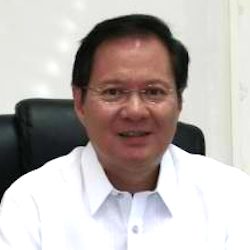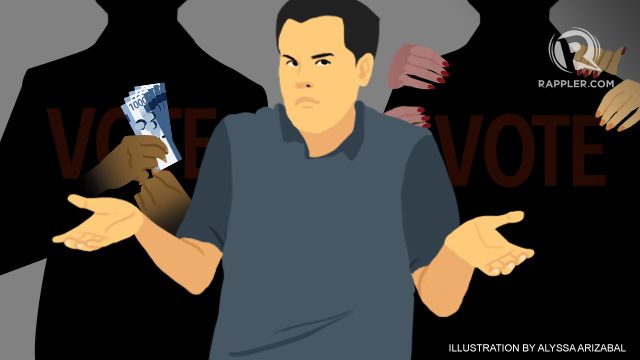SUMMARY
This is AI generated summarization, which may have errors. For context, always refer to the full article.

In the US the anger of the electorate in this election season is a recognized fact. Anger on the opposite ends of the US political spectrum explains the enormous popularity of Donald Trump on the right and the stiff challenge that Bernie Sanders has posed to Hillary Clinton on the left. While anger has fueled extreme positions in the US, in this season of Philippine elections anger is not a dominant motif.
There is no anger against corruption. Despite charges of corruption against them, presidential candidates, both past and present, have huge followings. People say, “lahat naman sila corrupt.” This blanket perception of politicians suggests that for many voters corruption is not a determining factor in the choice of candidate. It is not that a non-corrupt president is not appreciated; the contrary is very much the case, as the high approval ratings of President Benigno Aquino III, who is widely perceived as non-corrupt, suggests. But these voters look past the issue of corruption and think in a broader matrix. If corruption is linked to dismal conditions and a candidate is seen as bringing bad luck (malas), then that candidate is eschewed. But if a candidate is seen as bringing on prosperity, which may even benefit the voter, then that candidate will be preferred despite what all others may say. The vanguards of morality from the middle and upper classes target this type of people for voter education, but their premises come from very different directions.
There is also, among many voters, no anger against womanizing. One’s personal life is not an issue in the Philippines as it is in the US, and in this regard we are akin to Europeans. This was not an issue in the past and remains a non-issue at present. This position makes the same statement, “all of them do it.” It is the stuff of realism. As in the case of a candidate who is tainted with corruption, a candidate whose personal morality may be derided by some is assessed beyond the obvious failing. Again, these voters look at a broader matrix. However, a vote for a womanizer can be seen as a flippant shrugging off of the morals guarded by the institutional churches. While there is no anger, there is a subtle rebellion – not directly confrontational a la “weapons of the weak,” but in-your-face nonetheless.
But if there is no anger, there is some resentment. It stems from the feeling that one’s preferred presidential candidate in the past was not given a fair deal: massively cheated in the polls, unceremoniously forced to leave office. But this is not really an angry vote, and one moves on and accepts the realities and inequalities of life. When on the horizon appears a candidate who offers the chance to heal the past offense or even avenge the wrong done, well, why should these voters not take the opportunity? Still, they assess whether such a candidate possesses the qualifications of the leader they want.
On January 21, the Social Weather Stations (SWS) presented comparative survey data on opinions about the Aquino administration and previous administrations. It showed very high ratings for satisfaction with life and a most favorable assessment of the present administration that, despite shortfalls, outshines previous administrations. And the problem is not that the administration lacks good press, as some have commented – for the survey respondents gave their opinions favorable to the administration based on their subjective assessment, regardless of what the press reports or does not report.

The conundrum for some observers is why Aquino’s preferred successor is not doing too well in the opinion polls. It is certainly not due to anger. What is apparent is that voter preferences on the whole are not directly linked to assessments of the current administration. This observation should not be surprising because, after all, this country has not seen a well-established party system. If the political elites have no real parties, ordinary citizens cannot be expected to think along party lines, except when the benefits of patronage are at stake.
Electoral results have shown that Filipino voters, rich or poor, educated or uneducated, think seriously in terms of individuals. To begin with, the political system from the outset in the 20th century never pegged the vote for the vice president as contingent on one’s choice for president. A party vote, even for the top two elected officials, was never mandated, a hallmark of a highly individualistic thinking among the political elites. Thus the current situation, in which the sitting president and vice-president come from different political camps, is not seen as odd. In the current election season, voter preferences also indicate that they do not buy the political package on offer; rather, they disaggregate them.
Just as the political system thinks in individualistic terms, so do voters when they size up candidates: each one is seen as an individual and how he or she matches one’s preferences and expectations to bring on a desired outcome.
We confront a non-linear, non-institutional rationality that has very deep roots in the remote past. Throughout Southeast Asia, rulers in the precolonial past – “men of prowess,” as Oliver Wolters labeled them – needed to demonstrate individual achievements for them to make a valid claim to leadership. These achievements included supernatural feats that were interpreted as favors from the spirit-world as well as highly pragmatic outcomes, such as a bountiful harvest or catch at sea and alliances with a more powerful overlord.
Descent was not the primary criterion. Having a father for a ruler did not entitle the child to the same position later in life. But neither did it prevent the child from aiming for the same post. The point is that anyone who claims to be a ruler must prove the ability to rule. This frame of mind could explain why today close family members may end up opposing each other in politics, even as they may also cooperate, depending on circumstances and individual abilities. Now, if the family as a “corporate group” cannot pass on the mantle of political leadership, then weakly established political parties can do no better.
Each candidate is assessed in terms of what the individual is perceived to be capable of achieving and meeting the voter’s expectations. What that would be varies across the electorate. As someone told me recently, “We’ve tried this kind of government. It’s all right. But we’d like to try another kind. Maybe it can do something about the needs that this one did not meet.” – Rappler.com
Filomeno V. Aguilar Jr. is Professor in the Department of History and Project Director at the Institute of Philippine Culture (IPC), both in the School of Social Sciences, Ateneo de Manila University.
Add a comment
How does this make you feel?
There are no comments yet. Add your comment to start the conversation.